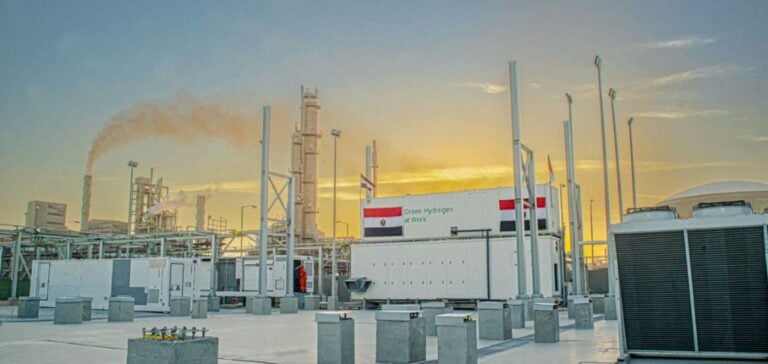The Guangdong-Hong Kong-Macao Greater Bay Area–Africa economic conference, held in Cairo on May 19, resulted in the signing of over 30 commercial agreements with a total value exceeding $1.8bn. These commitments primarily involve the development of energy cooperation between China and Egypt.
Electric mobility and energy components at the centre of the deals
Chinese companies such as BYD Company and Guangzhou Automobile Group (GAC) formalised joint projects with Egyptian partners to produce, assemble and distribute electric vehicles for the local and African markets. These partnerships also include the deployment of charging infrastructure and technology transfer for battery components.
Midea Group, specialised in home appliances and energy solutions, plans to expand its production capacity in Egypt to meet the growing demand for high-efficiency energy management systems.
Strengthening of smart energy infrastructure
The signed agreements also include projects targeting electricity transport and distribution infrastructure. Huawei Technologies committed to working with Egyptian operators to introduce digital energy management solutions, including smart grids and real-time monitoring platforms.
Initiatives in energy storage are also being considered, although no specific financial figures were disclosed for this segment. According to official statements, these projects aim to build sustainable local capacity supported by joint financing and knowledge transfer.
Egypt as a regional anchor for Chinese energy projects
Egypt’s geographic position and its trade agreements with 22 African countries make it a logistical platform for Chinese companies looking to expand across the continent. Egyptian officials highlighted the opportunities offered by this regional opening for high-tech energy projects.
Zhao Liuqing, Economic and Commercial Minister Counselor at the Chinese Embassy in Cairo, noted that China has remained Egypt’s largest trading partner for thirteen consecutive years. He stated that “Chinese innovation is bringing real benefits to Egyptian society”, referring to energy initiatives backed by both governments.






















